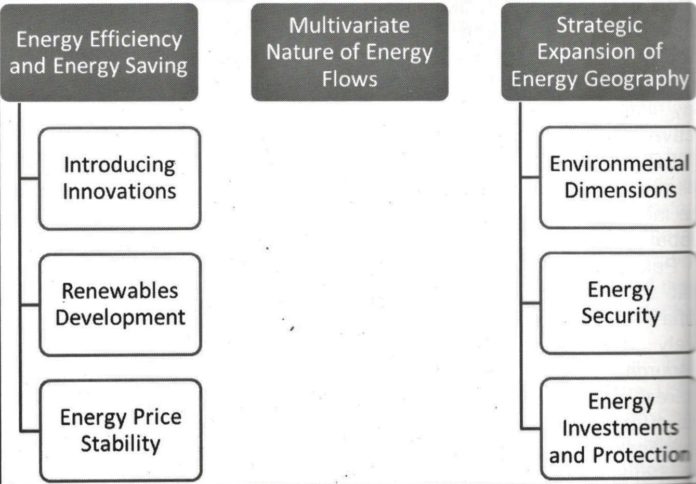Most recently, the Energy Charter Forum titled “Towards a Multilateral Framework Agreement on Transit of Energy Resources” was jointly organized by the International Energy Charter and the Government of Turkmenistan on April 30-31 2017. During the energy charter forum the development of the Framework Agreement on the Transit of Energy Resources was thoroughly discussed under the chairmanship of Turkmenistan.
The Energy Charter Forum discussed in details the improvement of mechanisms for international cooperation in the energy sector and development of a multilateral framework agreement on transit of energy resources.
Within the framework of Turkmenistan’s chairmanship, the Energy Charter Conference focused on such priority areas as ensuring the multivariate nature of energy flows, expanding their geography, energy efficiency and energy saving, introducing innovations, environmental dimension and renewable energy sources, reliability and security of international transit of energy carriers on an equitable, fair basis, improving the efficiency of investments and their protection. During all the interactive session prospects of integration and diversification of energy resources were discussed. All the scholars, organizers and diplomates, regional and international energy agencies, and the last but not the least, media participants highly appreciated the role and strategic vision of Turkmenistan’s President Gurbanguly Berdimuhamedov for the further development of energy resources in the region and beyond.
Over 100 participants including Ministers, high-level officials and leading experts from member and observer countries of the International Energy Charter, international organisations, energy companies and research institutions rigorously participated in the said Forum.
Energy Charter Forum Aims
The Forum aimed at discussing the issues of transit and cross-border transportation of energy resources, including natural gas, oil and electricity. The representatives of the governments and international organisations highlighted the complexity of ensuring the security of energy transit, and the need for establishing clear and consistent principles of multilateral cooperation among the participants. They all agreed on the importance of international energy cooperation for achieving global energy security and implementing the sustainable development goals.
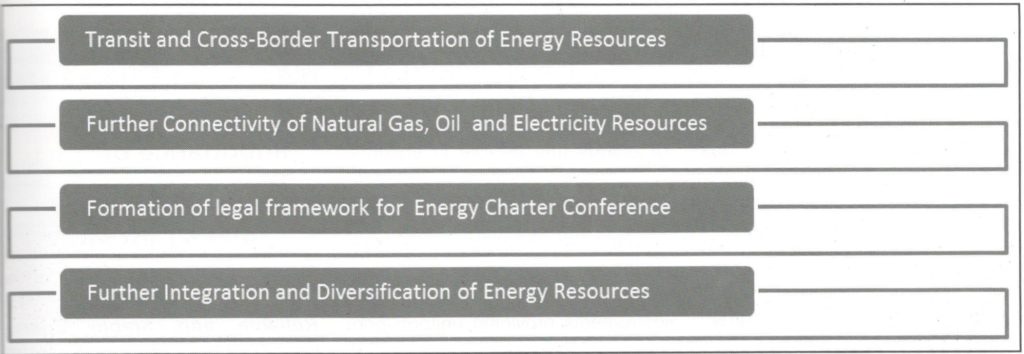
Ideal Platform
The forum provided a platform for a policy dialogue on energy transit in order to promote open energy markets, diversification of supply sources and routes, and sustainable development. The forum addressed operational, regulatory and legal aspects of energy transit, including natural gas, oil and electricity. It brought together government officials, representatives of international organizations, industry and academic institutions to discuss existing challenges and opportunities stemming from cross-border energy flows.
Welcoming Remarks
The welcoming remarks were delivered by Dr. Urban Rusnák, Secretary General of the International Energy Charter and Mr. Maksat Babayev, Chairman of the Energy Charter Conference, Deputy Chairman of the Cabinet of Ministers of Turkmenistan. The head of delegations were also delivered keynote speeches during the four main sessions, and was finally concluded with a panel discussion on the legal transit instrument.
The Chairman Mr. Babayev concluded the event by presenting the Concluding document of Ashgabat International Energy Charter Forum “Towards a Multilateral Framework Agreement on Transit of Energy Resources” under the chairmanship of Turkmenistan
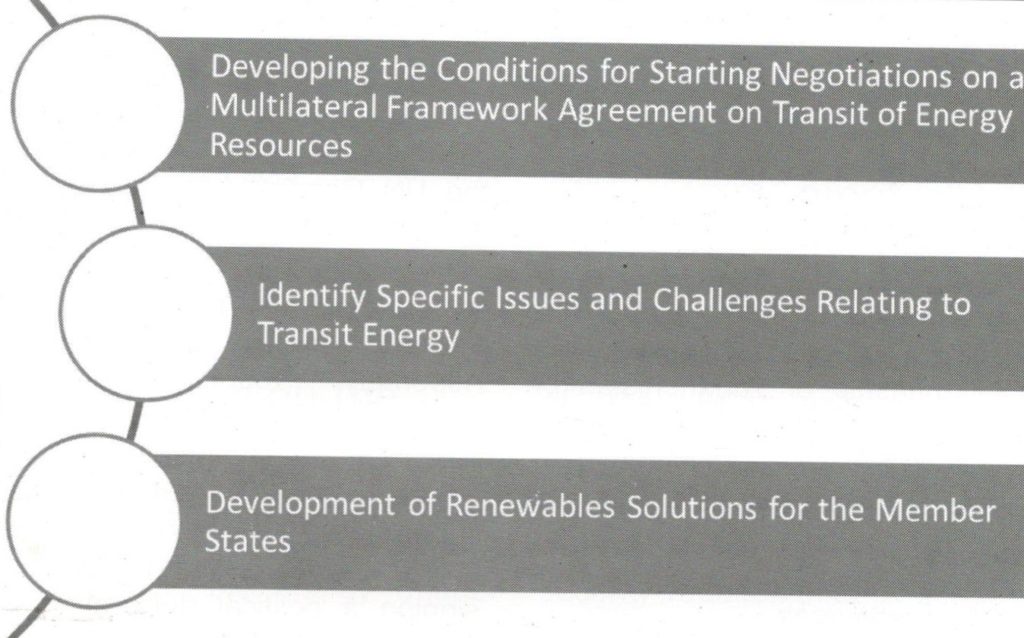
Main Task of 2017
Under the Chairmanship of Turkmenistan 2017 the subsidiary bodies of the Energy Charter Conference are currently working towards developing the conditions for starting negotiations on a Multilateral Framework Agreement on Transit of Energy Resources. In particular, the main task this year is to identify specific issues and challenges relating to transit and to develop possible alternative solutions reflecting the needs of the Energy Charter’s member countries.
Most recently held Energy Charter Forum, like the previous meetings of experts on reliable and stable energy transit held in Ashgabat (December 2014), Brussels (April 2015), Beijing (November 2015), and Tirana (July 2016) allowed discussions on the issues of transportation and transit in a broad geographical context, and took cared about the positions of different countries, both producers and consumers, and transit countries.
Importance of Transit of Energy Resources
During the said energy forum it was also pointed out that the transit of energy resources, which necessarily includes the issues of transportation and conditions for infrastructure access, is one of the most important elements of the entire interconnected chain of energy supplies to international markets.
Interactive Sessions
During different sessions issues of trade, transportation and transit of natural and liquefied gas, oil and electricity were discussed. All sessions highlighted the complexity of ensuring the security of energy transit, and emphasized the need for clear and consistent principles of multilateral cooperation among the participants, as it is often observed that different players tend to pursue their own particular interests. Issues of energy-importing countries were also discussed which heavily depend on foreign resources for proper functioning of their national economies. Energy-exporting countries and their enterprises placed great emphasis on the issue of market stability, as foreign trade is vital source of their income. Ultimately, all countries are interested in minimizing transit risks to ensure their own security during different sessions.
Strategic Significance of Transit
The current work within the Energy Charter Process under the Chairmanship of Turkmenistan on the development of a Multilateral Framework Agreement on the Transit of Energy Resources is one of the possible instruments for developing international trade in energy resources.
The importance of transit in the context of global energy security has already been addressed in the UN General Assembly Resolution 67/263 “Reliable and stable transit of energy and its role in ensuring sustainable development and international cooperation” developed at the initiative of Turkmenistan and adopted by consensus on May 17, 2013. However, there remains the need to develop multilateral legal instruments providing uniform principles and rules and regulating the relations among energy producers, consumers and transit countries.
Importance of Energy Investments
The speakers of the forum noted that there are issues related to the practical feasibility of investments, non-discriminatory access to the infrastructure, and general pricing principles using existing infrastructure. The creation of an international legally binding transit regime for cross-border transportation of natural gas, electricity and oil is a complex task. It was emphasized that the development of a single legally binding instrument on transit depends on the political will of the International Energy Charter member countries.
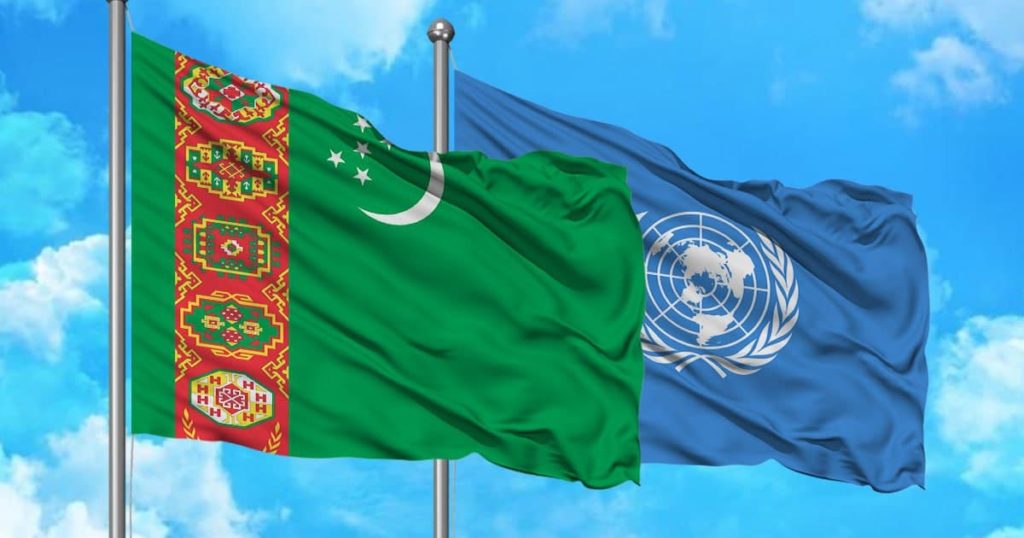
Contribution of Turkmenistan
The Government of Turkmenistan will submit a report to the UN General Assembly on the work in the field of energy transit accomplished jointly with the International Energy Charter in pursuance of the UN General Assembly Resolution 67/263. Moreover, Turkmenistan as the chair of the Energy Charter Conference in 2017 calls on the co-sponsors of this Resolution to join the Energy Charter Process by signing a political declaration the International Energy Charter with a view to fully participate in the development of uniform energy transit principles and rules.
Importance of Energy Charter Treaty
The Energy Charter Treaty is a unique legally binding instrument regulating the issues of energy transit, as reflected in the report of the UN Secretary-General “On Reliable and Stable Energy Transit and Its Role in Ensuring Sustainable Development and International Cooperation”, published in 2014. Signing the International Energy Charter that currently unites over 80 countries worldwide is the first step towards acceding to the Treaty, which aims to strengthen legal norms in the energy sector by applying uniform rules binding for all participants and minimizing the risks associated with investment and energy trade.
Importance of Geographical Expansion
It is hoped that the geographical expansion of the Energy Charter vector in a rapidly changing energy landscape will allow the existing and new members to define the principles of global interaction in the energy sector, including the transit issues on the agenda. Active participation of UN regional commissions, international energy and financial organisations should work on drafting a Multilateral Framework Agreement on Energy Transit, thus continuing the wide global dialogue initiated by the UN General Assembly Resolutions adopted in 2008 and 2013 on reliable and stable transit of energy resources.
It was concluded that considering the leading role of the International Energy Charter in energy transit issues, such meetings must be held on a regular basis in the regional context with a view to subsequently summarize the results of activities in this area.
Recognition of Government of Turkmenistan’s Efforts for Greater Energy Cooperation
The participants of the event highly appreciated the efforts of the Government of Turkmenistan and the International Energy Charter to promote a multilateral instrument on energy transit with a view to achieve a balance of interests of exporting countries, consumers and transit countries, and expressed gratitude to the Government and the President of Turkmenistan Gurbanguly Berdimuhamedov personally for the support provided for Ashgabat International Energy Charter Forum. In addition, it was noted that the participants hope that these conclusions will be taken into account and reflected in the political declaration to be adopted on the results of the 28th session of the Energy Charter Conference in Ashgabat on November 28-29 of the current year.
The International Energy Media Forum
To highlight the importance of Turkmenistan’s Chairmanship of Energy Charter Conference and outcome of the Energy Charter Forum 2017 an International Energy Media Forum was also arranged on May 31, 2017. Representatives of diplomatic corps in Turkmenistan, national, regional and international media, government’s officials, energy charter conference delegates, international energy organization, financial institutions, experts and research scholars participated in the said media forum.
Role of Ashgabat in Regional & International Energy Cooperation
During the said media forum, role of Ashgabat in the development of universal mechanisms within the UN that would ensure the reliable and safe operation of the international energy infrastructure were highlighted. It highlighted the interests of producer countries, transit countries and gas consumers in the media forum.
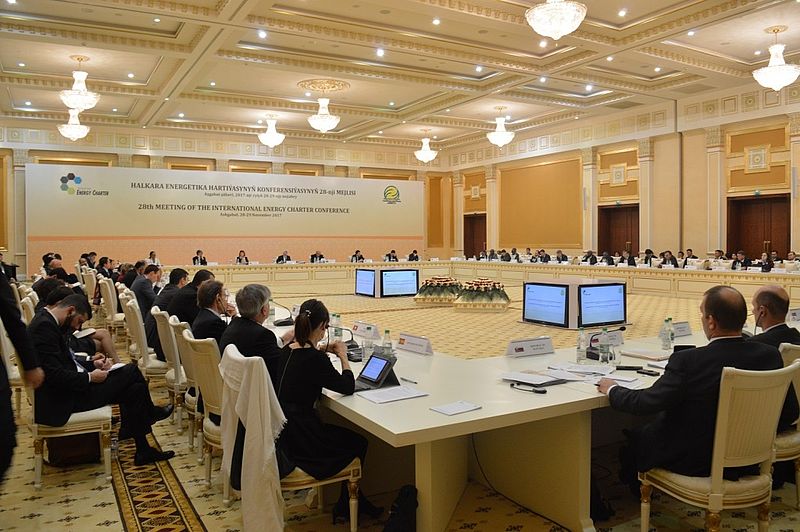
Turkmenistan’s Priorities of the Chairmanship
High-level representatives of Turkmenistan discussed the priorities of the chairmanship and addressed the timeframe and objectives of activities scheduled throughout the year. Representatives of the Contracting parties of the Energy Charter Treaty such as Afghanistan, stressed the benefits of engaging with the International Energy Charter while Albania, Georgia and Kazakhstan shared their valuable experiences with the past and upcoming chairmanship in the Conference.
Turkmenistan is one of the rich countries for its natural gas resources. According to BP, the country’s recoverable reserves are estimated at 17.5 trillion cubic meters of gas or nine percent of total global reserves, which puts Turkmenistan on the fourth position in this field after Iran, Russia and Qatar.
Pakistan and High level information workshop on the Energy Charter Treaty
Subsequent to Energy Charter Forum, a high level information workshop on the Energy Charter Treaty was held for the first time in Islamabad, Pakistan. Energy transit, dispute resolution and investment protection under the Energy Charter Treaty (ECT) were the key themes discussed during a workshop jointly organized by the Energy Charter Secretariat and the Ministry of Petroleum and Natural Resources of Pakistan on June 5, 2017.
The workshop was opened by Minister of Petroleum and Natural Resources of Pakistan Mr. Shahid Abbasi and by the Ambassadors of Turkey, Poland, and Turkmenistan. As Pakistan has been an observer to the Energy Charter Treaty (ECT) for more than a decade, the purpose of the workshop was to stimulate an open discussion within Pakistan about the country’s ECT accession prospects. The workshop could also help define the future relationship of Pakistan with the International Energy Charter.
Panel Discussion
The panel discussion was attended by almost forty representatives of various state sector stakeholder agencies and private sector entities, and was led by Energy Charter Secretariat officials Dr. Marat Terterov and Ruslan Galkanov. Dr. Marat delivered a keynote speech and highlighted the multiplier benefits of energy charter conference and rectification ECT. The workshop generated an intensive and professional exchange of opinions centred on energy transit, resolution of disputes and investment protection standards. The discussions were reinforced by practical considerations stemming from perceptions of the ECT existing within Pakistan, which were shaped by concepts such as investment arbitration, energy transit and Pakistan’s own domestic energy security requirements. A separate presentation devoted to an overview of Pakistan’s engagement with the ECT was delivered by Mr. Inam Ullah, legal manager with the Ministry of Petroleum and Natural Resources.
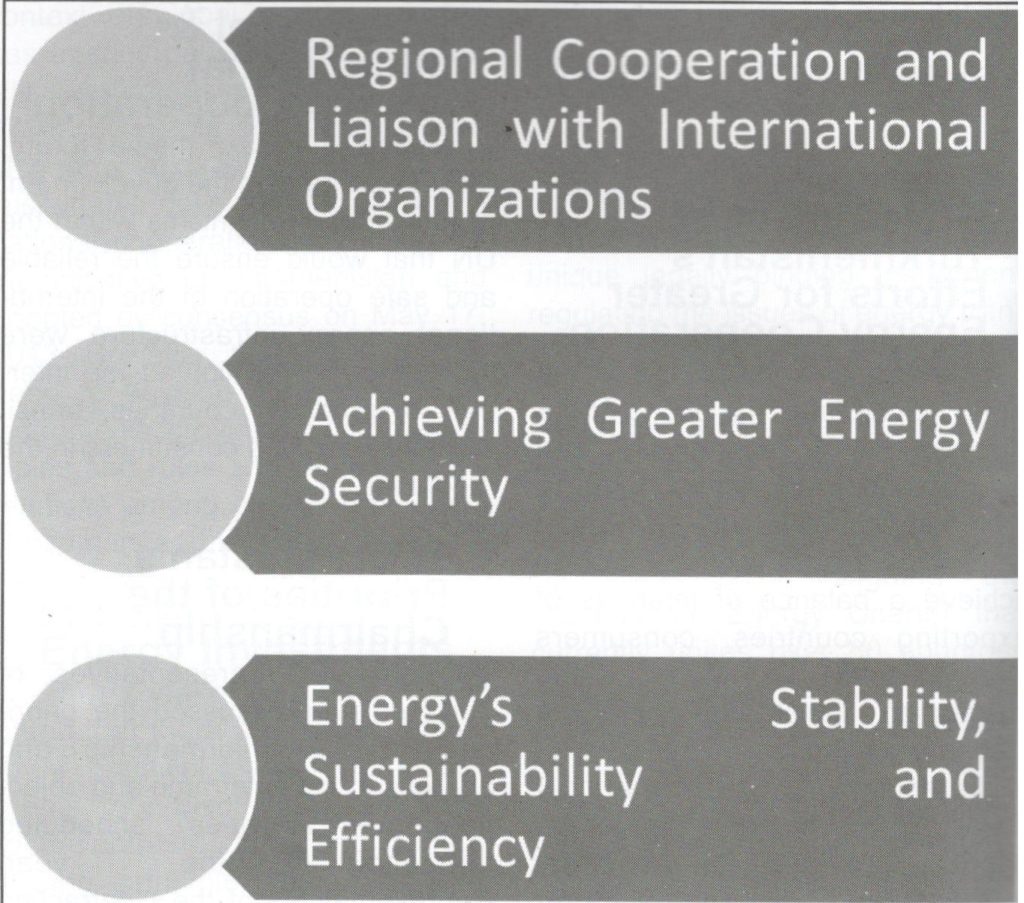
Turkmenistan’s National Energy Policy
Before the energy charter forum the government of Turkmenistan presented its new agency draft concept of energy charter conference which was the extension of its national energy policy. One of the main salient features of Turkmenistan’s national energy policy is regional cooperation and liaison with international organizations for achieving greater energy security, sustainably and efficiency. It is blessed with unlimited energy reservoirs which it plans to utilize for the greater regional prosperity, peace and development.
The successful holding of Energy Charter Forum and International Media Forum further strengthened the pace of development of effective long-term models for international cooperation in the energy sector, based on a balance of interests of all parties involved. Turkmenistan was unanimously elected Chairman of the Energy Charter Conference for 2017, at a meeting of the Conference held in Tokyo on 25-26 November 2016.
Showcasing of Turkmenistan’s Regional & International Achievements
It clearly showcased Turkmenistan’s liaison with international organizations in different field’s mainly energy cooperation, sustainable development, sustainable transport system, and millennium development goals. Turkmenistan has already achieved recognition of a reliable international partner at international level because of its progressive foreign policy of President Gurbanguly Berdimuhamedov, which main aspect is international energy cooperation and recently held energy charter conference has reaffirmed Turkmenistan positive, productive and prospective role in the further development of energy resources and cooperation. It reaffirmed that energy diplomacy of Turkmenistan was successful which was always distinguished by active position and interest in search for new and efficient solutions, finds broad response among the representatives of the world business and expert community.
Chairmanship of Turkmenistan has unique concept for Energy Charter Conference which emphases on the further enlargement of geography and multi-dimensional energy flows/ supplies ensuring their consistency and security of the international transit of energy on an equal and fair basis which is the need of the hour to maintain price stability at regional as well as international energy markets.
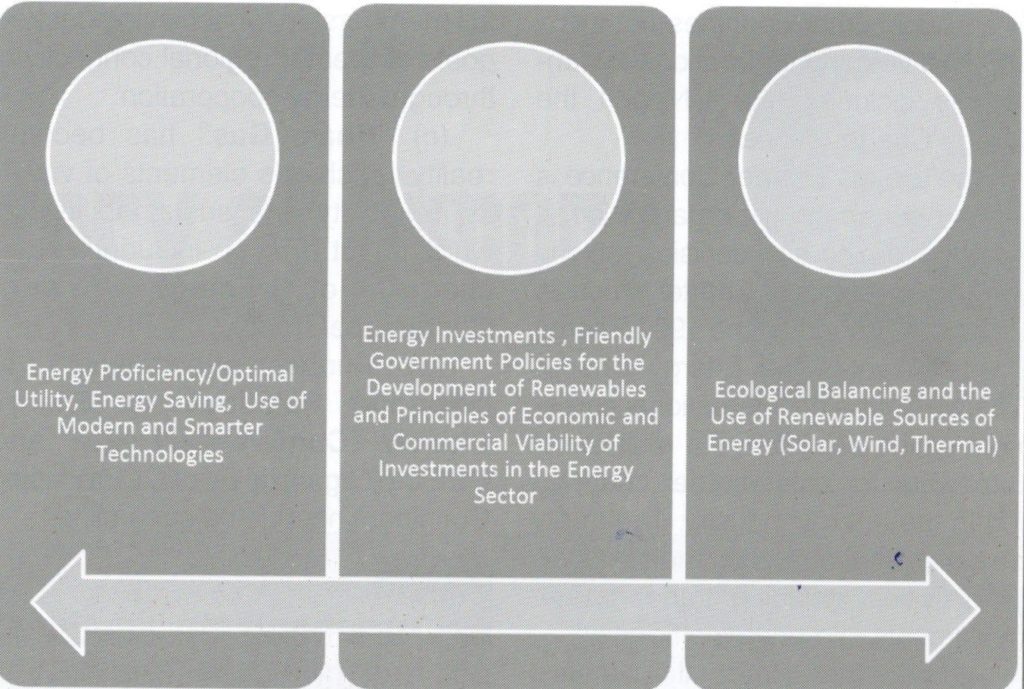
Turkmenistan’s Concept of Energy Cooperation/Development of Resources
It includes energy proficiency/optimal utility, and saving, introduction and implementation of modern and smarter technologies, the ecological balancing and the use of renewable sources of energy (solar, wind, thermal), beneficial energy investments, friendly government policies for the development of renewables and principles of economic and commercial viability of investments in the energy sector, their protection and efficiency. The drafted concept also focused on international transit of energy on equal and fair basis and improvement of efficiency of capital investments and their protection in the regional as well as international energy policies, programs and markets. For its international media projection a program of international events was held in Ashgabat, Brussels, New York, Beijing, Hong Kong and Tehran.
Being a leading energy rich country, Turkmenistan actively cooperates with major international organizations, including the Energy Charter, and is the venue for multilateral meetings and forums. In December 2014, the Ashgabat in conjunction with this specialized structure arranged the Ashgabat Forum “Reliable and stable transit of energy resources”, as well as in accordance with the resolutions adopted at the “67th session of the UN General Assembly” held the first international meeting of experts on the said topic. During this interactive forum, specialized experts meetings were organized in 2015 in Brussels and Beijing, and in 2016 in Tirana.
H.E. President of Turkmenistan put forward the proposal for the establishment of an international legal mechanism to ensure energy security in 2007, at the 62nd session of the UN General Assembly. Special resolutions on reliable and stable transit of energy resources to global markets were adopted by UN in 2008 and 2013, which set out the basic principles and approaches to cooperation in this field.
The Resolution of President Gurbanguly Berdymuhamedov has approved the Activity Plan on Turkmenistan’s chairmanship in the Energy Charter Conference for 2017. The Plan provides for variety of activities, to be held in Turkmenistan and abroad.
Turkmenistan is one of the founders of the Energy Charter and chairing of Turkmenistan is aimed at development and consolidation of international energy cooperation, establishment of quality new ground for discussion of topical issues of the development of the world energy, provision of the global energy security as integral part of universal sustainable development in the context of practical realization of relative Resolution, which was initiated by President of Turkmenistan Gurbanguly Berdimuhamedov and adopted by the UN General Assembly.
Chairmanship of Turkmenistan at energy charter conference pledges its enormous natural resources for the welfare of humanity, realizing the policy based on the principles of combined modernization of fuel and energy complex and diversification of energy supplies to the world markets.
Turkmenistan considerably increased production rates of fuel and energy resources. Moreover, transport routes of energy have been diversified. Moreover, the role of Turkmenistan in supply of energy to the world market grows and determines the level of its geopolitical influence. It has also adopted policy of “diversification of transport infrastructure”, which enables to supply energy resources via ramified network of multiple-choice pipeline system. Thanks to energy policies of Turkmenistan which stipulates integrated development of energy cooperation not only between the countries suppliers, transit and consumer countries but interested parties and international organizations including the UN and the Energy Charter as well.
The Energy Charter Conference is an inter-governmental organization. It is the governing and decision-making body for the Energy Charter process. It was established by the 1994 Energy Charter Treaty. The Energy Charter Treaty (ECT) is an international agreement which establishes a multilateral framework for cross-border cooperation in the energy industry. The treaty covers all aspects of commercial energy activities including trade, transit, investments and energy efficiency.
All states or Regional Economic International Organisations which have signed or acceded to the Treaty are members of the Conference. The member countries meet on a regular basis to discuss issues affecting energy cooperation among the Treaty’s signatories, to review the implementation of the provisions of the Energy Charter Treaty and the Protocol on Energy Efficiency and Related Environmental Aspects, and to consider possible new instruments and joint activities within the Energy Charter framework.
Suggestions
For the further strengthening of regional energy cooperation and international legal framework, following suggestions must be taken into consideration:-
(a) There must be a ”Energy Investment Bank” in the Energy Charter Conference where every member states has the equal right to submit its proposal for seeking essential finances for its energy projects.
(b) Since Turkmenistan and Pakistan are cooperating in different mega transregional energy projects in shape of TAPI (Turkmenistan-Afghanistan-Pakistan and India Gas Pipeline) and CASA-1000 with other CIS, so, Pakistan ”Observer Country Status” in Energy Charter Conference must be enhanced up to full membership for achieving desired goals of greater regional connectivity through energy cooperation.
(c) “Shale Gas” has become reality which has elements of viability, reliability and sustainability too which must also be included in the charter of Energy Charter Conference/ Treaty.
(d) Further strengthening of “Working Relations of Energy Charter Conference/ Treaty and OPEC” (Organization of Oil Producing Countries) need to be streamlined.
(e) “Geo-political and Geo-strategic Considerations/ Compulsions” of energy cooperation and transit should be thoroughly studied and resolved.
(f) Mechanism of “Conflict Resolution” needs to be further strengthened within the framework of Energy Charter Conference/ Treaty.
(g) Standardized operationalization, channelization and implementations of “Climate Change Policies” for all the member states to achieve ecological balancing.
(h) More focus ought to be paid on its “Strategic Expansion” for its international functionality and acceptability in the days to come.
(i) There must be “Energy Charter Treaty Desk” in all the member states embassies for easy and smooth liaison.
(j) “Energy Innovation Price” must be announced for the further development of renewables in the member states as happens in the United Arab Emirates (UAE) on annual basis.
Concluding Remarks
Under the visionary leadership of the President of Turkmenistan, it is progressively promoting cooperation with the major international organizations and hosted many interactive multilateral events and seminars which highlighted the importance of energy cooperation. It is hoped that being Chairman of the Energy Charter Conference, Turkmenistan would give additional impulse to mutually beneficial cooperation and would promote establishment of global dialog in energy security. It would achieve set targets in consolidation of the efforts aimed at development of new approaches to the issues of energy security and sustainable development in general. It would further consolidate Turkmenistan’s role in energy cooperation. It would also establish stable structure of the global energy security, which is built on the principles of justice, balance of interests of both supplying countries and transit countries and consumers.


